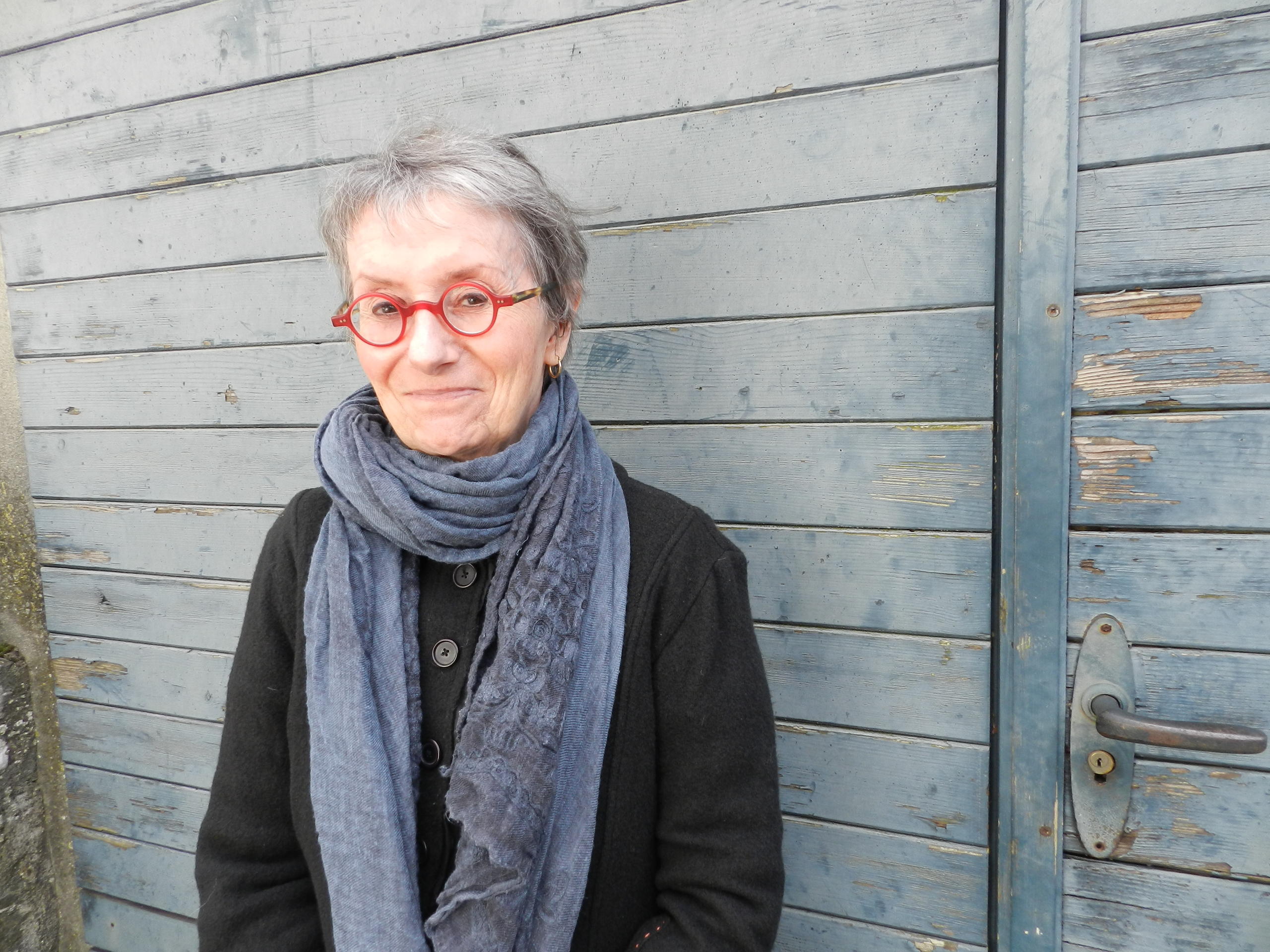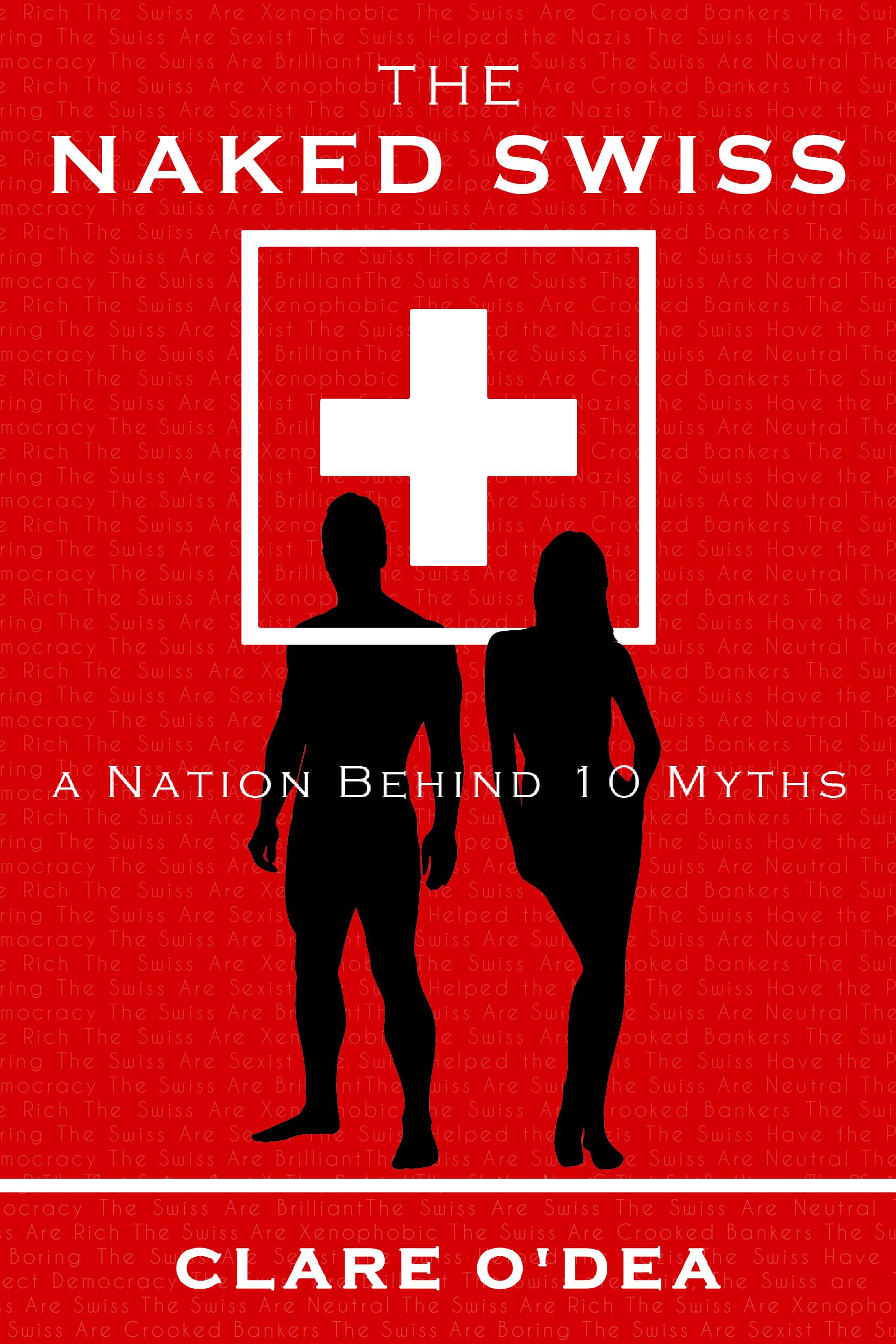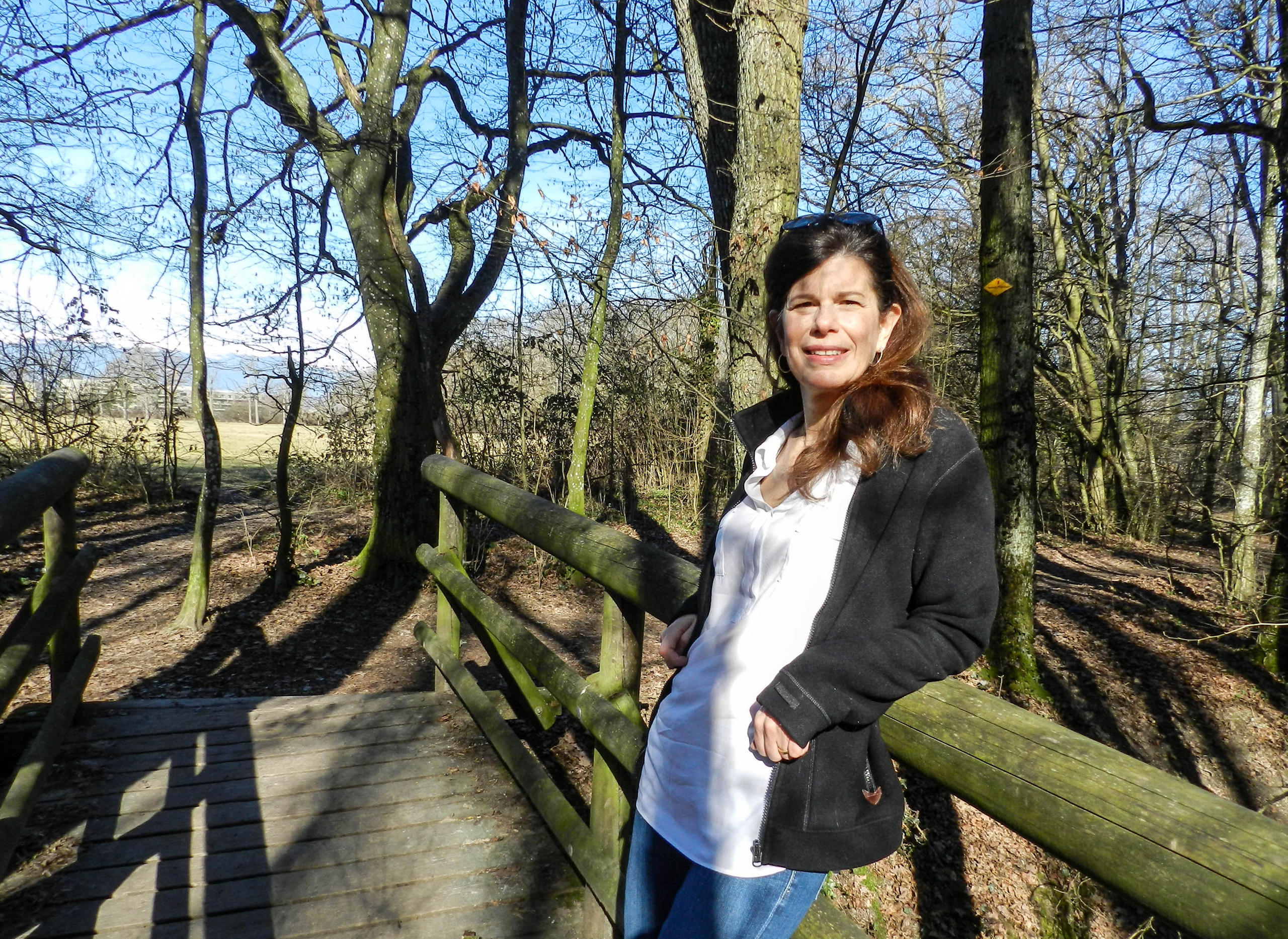Time travelling writer returns to Switzerland

Author Alison Anderson’s lifelong association with Switzerland began in her childhood. In this fourth in a series of profiles with English-language authors, Clare O’Dea visits Anderson in her Lake Geneva home, close to echoes of her past.
As a young student in the 1970s, Alison Anderson came to a pebble beach on the shore of Lake Geneva with her friends to while away summer days and nights. Today, the American author has made her home in that quiet place.
The weather is poised to change when I arrive in the village, rain threatening to rush inland at any moment from the vast expanse of the lake. I follow Anderson’s directions to Watchmaker Street, a quintessentially Swiss address, and discover her bijou residence, the smallest house I’ve ever seen.
It is just the right time of day for a cup of tea, but experience has taught me to be cautious when accepting a cuppa in Swiss homes. You never know what sort of fruity concoction you may be served. Anderson bowls me over when she offers me Irish black tea, a gift from a friend. Our meeting is off to a good start.
Under the stern scrutiny of Anderson’s black cat, we nibble almond biscuits and talk about her latest book, The Summer Guest, a captivating story partly set in 1880s Ukraine, which features a present-day translator working on a mysterious old diary linked to the great Russian writer Chekhov.
Swiss ties
Our conversation also moves back and forth from the past to the present, and I discover that the Connecticut-born writer’s ties to Switzerland go back a long way.
She came with her parents to live in Lausanne for a year after her sister married a Swiss man. The move was possible because her father took a sabbatical from Yale where he was a professor of theology.
After her first taste of Swiss life, Anderson returned to the country again and again. It was in Switzerland that she sat her baccalaureate exams, completed a language degree and gave birth to her daughter.
Anderson wrote her first and third novels within sight of the Alps. Along the way, she has lived in four other countries, including three years on a Greek island, and a five-year stint living on a wooden sailboat in San Francisco Bay.
“When I first returned to Switzerland at the age of sixteen to attend gymnasium [Swiss high school], I was fascinated by the foreignness of everything. I loved the language and the music, these French singers. It was something I could have for me that American teenagers didn’t have.”

Resourceful
Language became Anderson’s profession, initially teaching, and later literary translation and her own works of fiction.
Anderson has always has been resourceful in adapting her career. “I decided I didn’t want to stay a teacher because I don’t like the discipline issues and it’s tiring. I did the translating course in Geneva when I was in my thirties. When I didn’t get into the UN, I set up on my own. I thought if I didn’t make it as a literary translator I would go to Bordeaux and do a course on wines and become an oenology translator.”
But Anderson did make it. Her many translations include Muriel Barbery’s The Elegance of the Hedgehog, Ingrid Betancourt’s memoir, and the work of Nobel laureate JMG De Clézio.
“The first half a dozen books I translated I chose myself, and then went out and found a publisher. But that’s very time consuming, like trying to get a novel published.” Now Anderson translates five or six books per year from French to English, including, most recently, the second novel by Joël Dicker, Switzerland’s new international literary sensation.
Return to Europe
The rain has come and gone, and we decide to go for a walk along the lake. Popular in summer, the small beach below the village is deserted on this cool spring day. Anderson ponders the role serendipity played in bringing her back to the region of her youth.
When the economic crisis struck in 2008, the writer was living in California and she soon felt its effects. “My landlady was one of the first victims. She was having trouble making her mortgage payments and wanted to move in to where I was living. It was the nudge I needed to come back to Europe.”
Anderson found her little lake house through in-laws of her Swiss niece. But this idyllic setting between Geneva and Lausanne has more to offer than beautiful views. It is also close to the Chateau de Lavigny, an international writing retreat which attracts leading and emerging writers from all over the world. Anderson has spent time there over the years and is still a regular visitor.
40 per cent writer
The veteran writer admits she’s had a “chequered” writing career, changing agents, editors and publishers, mostly due to unforeseen circumstances. Her first novel, Hidden Latitudes, came out in 1996, but as is the reality for most authors, the sales were modest and she had to keep the day job, working for the French consulate in San Francisco. A second novel, Darwin’s Wink, followed in 2006.
“At this point, I don’t mind. Given the state of the market, and what I hear from other writers, I’m really happy to have got this latest novel published. And I’m very pleased with the translations. My character is probably 60 per cent translator and 40 per cent writer.”
The 40 per cent is currently researching a fourth novel. It is a process that could take some time. When Anderson was struck by the inspiration to write about Chekhov, she spent six years on and off researching. “I read all the stories, the biographies, the critical works and collected letters, and I rented DVDs of the plays. Always with this goal in mind that I was going to find a story.”
The story she found was in a letter Chekhov wrote in May 1888 when he was settling into his summer residence in Ukraine. In it he described the landowning family on whose estate he was staying. The two daughters of the house were qualified doctors, one of whom, Zinaida, was blinded by a terminal illness. “That’s when I realised I had my characters.”
Patience and passion
When Anderson got stuck on The Summer Guest, she travelled to the site of the house where her nineteenth century heroine had lived. “I had written most of the novel but I didn’t have the ending. I went through about ten different drafts. I travelled to that house, where there is a museum today, and I got the inspiration for the ending there. Within two weeks I had it written.”
Anderson’s advice to aspiring writers is to have patience and passion. “Just be very patient. Don’t give up and be really passionate about your project. And you’ve just got to have a second job. Nobody’s making money any more from writing.”
Living in Switzerland suits Anderson, content as she is to be far from the pressures of her calling. “The general consensus in the States is that if you want to become a career author, you have to move to Brooklyn or New York City where the publishers are. You have to go to conferences and network, attend literary events and schmooze. I hate all that.”
Although there are some constraints that come from not being in the States, more and more promotion is now happening online, and the trade-off is worth it for Anderson. “Switzerland is a really restful place to be for my creative self. And I have plenty of contact with other writers through Lavigny, the Geneva Writers’ Group and other people I’ve met. I’m not that far away from the action.”
As we say our farewells, there is still not a soul to be seen in the village. The effect of Anderson’s vintage-style attire coupled with the quaint old architecture make me feel that I’ve stepped back in time. I know that the modern world of highways and superstores is just minutes away. I close my car door, like closing a book, and return to reality.
Books by Alison Anderson
The Summer Guest, Harper, 2016
Darwin’s Wink, Picador, 2005
Hidden Latitudes, Scribner Book Company, 1996

In compliance with the JTI standards
More: SWI swissinfo.ch certified by the Journalism Trust Initiative













You can find an overview of ongoing debates with our journalists here . Please join us!
If you want to start a conversation about a topic raised in this article or want to report factual errors, email us at english@swissinfo.ch.